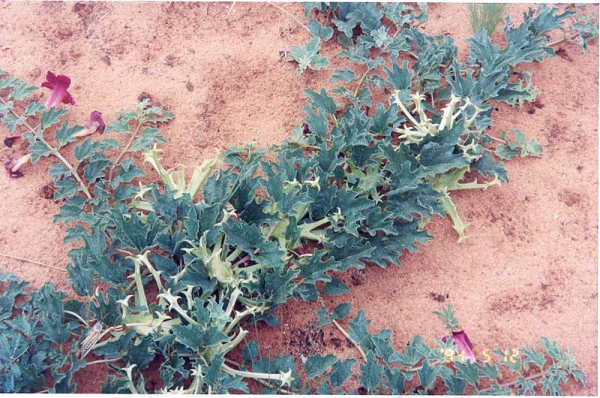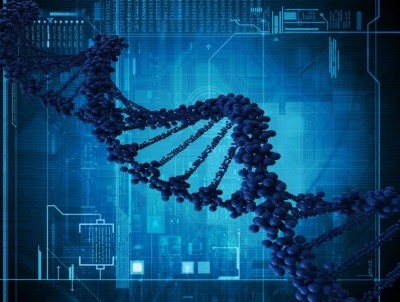Schneiderman takes 13 devil's claw manufacturers to task over species intermixing that experts say is 'non-issue'

The NYAG’s office sent letters to the companies on Wednesday. According to a press statement, the office commissioned “a study from the New York Botanical Garden that used an advanced DNA barcoding technique to conclude that the devil’s claw supplements from these manufacturers contained a cheaper related species that is considered less desirable. Attorney General Schneiderman requested that the companies furnish proposals, where appropriate, for recalling any adulterated devil’s claw supplements, compensating consumers who purchased the mislabeled products, and reforming their approach to quality control.”
The NYAG said another company, Nature’s Way, has already agreed to work with the office to bolster its quality control of its devil’s claw supplements to ensure that they contain only the target species. Nature’s Way, one of the four companies that were targeted by Schneiderman in his original investigation of herbal dietary supplements sold in New York had already agreed in May in response to Schneiderman’s prodding to institute a more rigorous plant-to-powder supply chain management structure. The key element of the new identification scheme is a policy that every botanical material the company receives will have to be accompanied with proof of origin that can be traced back to the plant in the ground. This will include verification of time and place of harvest, photos of the plant, proof that a scientifically valid procedure was followed to compare the plant to a botanical reference, and a pressed sample of the plant itself.
Getting it wrong again
Herbal experts were quick to chime in that NY AG did not seem to fully understand the issues surrounding the formulation and marketing of this niche botanical and that the mixing of species that Schneiderman was trying to characterize as adulteration was in fact a long accepted practice within the industry. This practice has no implications for the efficacy of the products and has no negative impact on the health or safety of consumers, they said.
The crux of the matter is the description of “devil’s claw” in the reference work Herbs of Commerce, published by the American Herbal Products Association, which has been accepted as authoritative by the Food and Drug Administration. In that work, one species is listed under the devil’s claw entry: Harpagophytum procumbens, a plant in the sesame family native to desert regions of southern Africa. Devil’s claw is said to have anti inflammatory properties and is mentioned in connection to health indications such as arthritis, atherosclerosis and others.
There is another species so closely related at to be almost indistinguishable, Harpagophytum zeyheri, that presents many of the same active ingredients, knows as harpagosides. In areas with a long history of herbal medicinal use, such as Europe, the use of these species interchangeably has long been accepted practice.
“This is a very old issue which has no relevance anymore. Lots of publications have compared the two devil’s claw species in the past in Europe and agreed that both can be used interchangeably,” Joerg Gruenwald, PhD, a Berlin-based herbal expert and principal in the consulting firm Analyze & Realize told NutraIngredients-USA. Gruenwald said the official position of the European Herbal Medicine Agency is that the two species “can be regarded as substantially equivalent and comparable.”
“Both species of devil’s claw have a similar chemical profile,” said Thomas Brendler, a medicinal plant expert and editor of the African Herbal Pharmacopeia, a compilation of technical information of various African medicinal plants, including their botany, growing conditions, range of habitat, chemistry, and traditional and modern medicinal activities and uses. “While both species differ marginally in shape and chemical composition, both are considered equally effective,” he said.
Schneiderman’s statement took the companies to task for the inclusion of zeyheri. “Some of the most sought-after chemicals tend to naturally occur in different ratios and in lower concentrations in zeyheri, which is the cheaper of the two plants,” the statement said.
Roy Upton, executive director of the American Herbal Pharmacopoeia, said as far as he can tell, the notion that there is a functional difference between the two species can be traced to the findings of a single paper, which he said was critically flawed because it compared only a single specimen of each plant. He said at least 10 examples of each plant would be needed to make an accurate comparison while making sure that the plants were harvested and handled under similar conditions. The precise chemical composition of botanical specimens can vary even within the same species, he said, depending on how the conditions under which they grew and how they were handled after harvesting.
“Virtually all of the official herbal medicines made in the European Union are made from a mix of procumbens and zeyheri,” Upton said.

Label integrity
Steve Mister, president and CEO of the Council for Responsible Nutrition, said the companies in question should have been given a chance to defend themselves before being charged with mislabeling their products.
“Supply chain integrity is of the utmost importance to the dietary supplement industry. There are multiple ways to qualify the supply chain, to identify ingredients, and to detect adulterants in products. The companies involved should be permitted to defend their methods of ingredient testing and to justify their use of particular species of botanicals before being declared to be misbranded or adulterated by the New York Attorney General,” he said.
“The federal law for dietary supplements requires that what’s in the bottle is on the label. Proper identification of ingredients is a requirement of federal law and we expect all companies to stand behind the quality of their products. As we have seen before, investigations by the New York Attorney General’s office are rarely as clear-cut as they might seem,” Mister said.
Protecting the consumer?
Mark Blumenthal, executive director of the American Botanical Council, said Schneiderman’s approach to the issue seemed picayune and was unlikely to improve matters for consumers.
“Splitting the devil’s claw genus in the very narrow way that they have done in this investigation is akin to splitting hairs — it has no real meaning or value to anyone, particularly the herb consumer,” he said.
“This may be a hair-splitting botanical distinction, but it certainly is not a legal or regulatory one, especially since authoritative sources recognize both species as being ‘devil’s claw’,” Blumenthal said.
According to data ABC used for its annual herb market report, devil’s claw is a relatively low-selling herb in the United States. In 2014, devil’s claw ranked 162nd in sales in the US mainstream retail market and 150th in the natural and health foods channel. Total estimated sales of devil’s claw dietary supplements in the United States range from approximately $250,000 to up to $500,000.
Companies involved
The following list is the 13 companies besides Nature’s Way mentioned by NYAG. Twelve of these received letters; the last, Shine, did not as an address for the company could not be found and it is not registered to do business in New York State.
• Nutraceutical International Corporation (Soloray);
• Alternative Remedies Health & Herbs;
• The Kroger Co., as parent of Vitacost.com;
• FoodScience Corporation (Food Science of Vermont & DaVinci Labs);
• Biopower Nutrition;
• Thorne Research;
• NBTY (Puritan’s Pride);
• Olympian Labs (Prescribed Choice);
• Now Foods;
• Nature's Sunshine Products, Inc.;
• Vital Nutrients;
• The Natural Healing Room & End Time Essentials; and
• Shine Supplements
Several of these companies did not respond to requests for comment. NOW Foods, based in Bloomingdale, IL, released the following statement from CEO Jim Emme, who emphasized this is not a safety issue:
“I can confirm that we did receive the letter from the New York Attorney General's office today. Although we are confident in the quality of our products, we are conducting an internal investigation on the devil's claw raw material. There is no known safety issue with the consumption of this product.”
The NY AG's office did not respond to requests for additional comment.

















